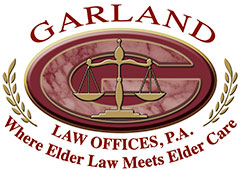Don’t leave your loved ones with unnecessary expenses after you’re gone.
During everyone’s lifetime, they try their best to protect people and objects that they love. Locks, alarms, fences, and cameras are used to keep these things that hold importance and value, safe. But, what happens after this person dies? How do they continue to protect their legacy once they are gone?
This is when estate planning comes in. Estate planning usually begins with a will. Having a will is a great first step, but does not complete your to-do list. A will provides statements describing where you would like your remaining assets to go but does not state how they should be distributed.
When a person dies without a clear direction of the distribution of their assets, their belongings and equity go through a process called probate. In the case of probate, the state court decides on distribution. This becomes very costly, time-consuming, and complicated.
Put simply, probate is the distribution of a deceased person’s property through a court.
Probate typically takes anywhere from six months to two years. Even with simple assets, like only owning one home and a car. Court costs pile up over time, and the probate process becomes difficult for everyone involved. Especially because during this time, your beneficiaries can not touch any of your assets until the court process is completed.
Here are some examples of how you can avoid expensive probate costs:
- Create a revocable living trust.
One way to avoid probate costs is to write a living trust. Putting your assets into a trust, rather than a will, allows for a smooth transfer of property ownership. This step avoids probate entirely; all of your assets are identified and distributed as granted.
- Identify your beneficiaries.
Under documents such as retirement accounts, IRA’s, and 401(k)s, you should have a named designated beneficiary. This ensures that special accounts will be handed to the correct person, and will avoid the need to go through probate altogether.
- Create joint property ownership.
You can appoint another person as a joint owner with the right of survivorship. This means that upon your death, the joint owner of your property will immediately be granted ownership. This is not always the best case for everyone, so be sure to speak to an estate planning lawyer before making
Some probates can be known to take years, especially if there are disputes during the process. Ensure your loved ones and property are protected. Start your estate planning today.
Credited By/Read More:

One thought on “Three Simple Ways To Avoid Probate Costs, And Why You Should”
Comments are closed.